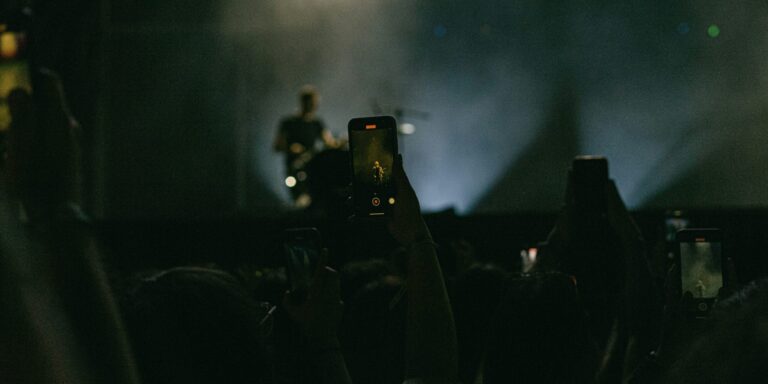As the music industry continues to evolve in 2025, the relationship between artists and their fans has undergone a profound transformation, driven largely by the rise of social media. Platforms like Instagram, Twitter, TikTok, and YouTube have reshaped how musicians connect with their audiences, moving what was once a distant, transactional relationship into a more personal and immediate space. While this increased accessibility has enabled closer bonds between artists and fans, it also raises important questions: Does this new level of interaction foster deeper, more meaningful connections, or does it create unhealthy dynamics that could harm both the artist and their fanbase?
In today’s music landscape, social media has become the most direct and immediate way for artists to engage with their followers. Unlike previous generations of musicians who relied on traditional media outlets or limited personal appearances, today’s artists have the power to share virtually every aspect of their lives with fans. From behind-the-scenes footage of recording sessions to glimpses into their personal routines, social media offers fans a window into their favorite artists’ daily lives. This intimacy, previously reserved for a select few, is now accessible to millions of people around the world. Artists can directly respond to comments, share personal updates, and even interact with fans in real time, creating a sense of connection that feels more personal and authentic than ever before.
This shift in how artists engage with their audiences has fundamentally changed the nature of fan relationships. Fans are no longer passive observers of an artist’s work; they are active participants in the artist’s journey. Social media platforms provide an avenue for fans to offer support, share their own interpretations of songs, and become involved in the creative process. This sense of participation can create a deeper emotional connection between artists and their fans, making fans feel more invested in the artist’s success. For musicians, this direct connection can help foster a loyal, engaged fanbase, offering not just a source of income but also emotional support and encouragement.
However, this increased accessibility and interaction also comes with its own set of challenges. The pressure for constant engagement can be overwhelming for artists, particularly as social media has become an essential tool for promotion and career growth. Musicians are expected to maintain a constant online presence, regularly posting content, responding to comments, and interacting with fans. While this engagement can be rewarding, it can also be exhausting, especially for artists who may not have the time, energy, or inclination to be constantly “on.” The line between an artist’s professional and personal life becomes increasingly difficult to maintain, as everything from personal opinions to family moments is often shared with the public.
This blurring of boundaries can lead to significant emotional and psychological strain for musicians. In the past, artists had some degree of privacy and control over what was shared with the public, but now, social media has created an environment where there is an implicit expectation for artists to share every detail of their lives. This constant demand for engagement can make it difficult for artists to carve out time for self-care, rest, or privacy. The pressure to maintain a certain public image or to constantly create new content can also contribute to burnout, leaving artists feeling drained and disconnected from the very music and creative process they are meant to enjoy.
Moreover, the nature of social media interactions can sometimes lead to unhealthy dynamics between artists and their fans. The increased visibility of an artist’s personal life often opens the door to unwanted attention, criticism, and harassment. While many fans are supportive and positive, the anonymity of the internet allows for toxic interactions, including trolling, body shaming, or intrusive comments about an artist’s private life. This can be especially challenging for younger or less-established artists, who may not have the resources or coping mechanisms to handle negative feedback or online harassment. The pressure to appease fans while maintaining mental and emotional well-being can be a delicate balancing act for musicians.
In 2025, social media is clearly here to stay as a tool for fan engagement. However, as the nature of artist-fan relationships continues to evolve, musicians must find ways to strike a balance between staying connected with their audience and protecting their own mental health and privacy. While social media provides a valuable tool for artists to build their brands, foster deeper connections, and connect with fans worldwide, it also requires artists to set boundaries and prioritize self-care. For the health of both artists and fans, it’s essential for the industry to recognize the importance of mental well-being and create a culture where healthy, respectful relationships can thrive.
Ultimately, the future of artist-fan relationships in the age of social media will depend on how artists, fans, and the music industry adapt to these new dynamics. For musicians, it will be crucial to maintain their autonomy and mental health while still engaging with their fanbase in meaningful ways. For fans, respecting the boundaries of artists and recognizing that they are people with lives beyond the screen will be key to fostering a supportive and positive environment. As this relationship continues to evolve, the focus should be on creating a balanced, healthy interaction that benefits both the artists and their fans.
In conclusion, while social media has undeniably changed the way artists and fans connect, it has also introduced new challenges that must be navigated carefully. In 2025, it is clear that social media will continue to be a powerful tool for artists to engage with their audiences. However, as the industry adapts to these changes, it’s important to remember that maintaining the well-being of the artist is just as crucial as maintaining the connection with their fans.


